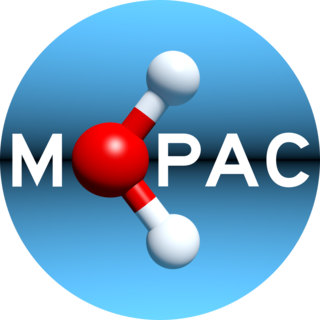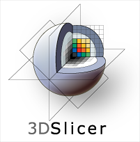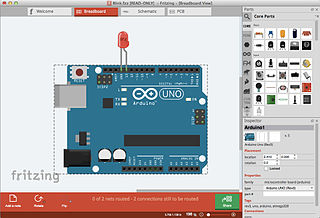
KornShell (ksh) is a Unix shell which was developed by David Korn at Bell Labs in the early 1980s and announced at USENIX on July 14, 1983. The initial development was based on Bourne shell source code. Other early contributors were Bell Labs developers Mike Veach and Pat Sullivan, who wrote the Emacs and vi-style line editing modes' code, respectively. KornShell is backward-compatible with the Bourne shell and includes many features of the C shell, inspired by the requests of Bell Labs users.

YaST is a Linux operating system setup and configuration tool.
Psi is an ab initio computational chemistry package originally written by the research group of Henry F. Schaefer, III. Utilizing Psi, one can perform a calculation on a molecular system with various kinds of methods such as Hartree-Fock, Post-Hartree–Fock electron correlation methods, and density functional theory. The program can compute energies, optimize molecular geometries, and compute vibrational frequencies. The major part of the program is written in C++, while Python API is also available, which allows users to perform complex computations or automate tasks easily.

MOPAC is a computational chemistry software package that implements a variety of semi-empirical quantum chemistry methods based on the neglect of diatomic differential overlap (NDDO) approximation and fit primarily for gas-phase thermochemistry. Modern versions of MOPAC support 83 elements of the periodic table and have expanded functionality for solvated molecules, crystalline solids, and proteins.
Trilinos is a collection of open-source software libraries, called packages, intended to be used as building blocks for the development of scientific applications. The word "Trilinos" is Greek and conveys the idea of "a string of pearls", suggesting a number of software packages linked together by a common infrastructure. Trilinos was developed at Sandia National Laboratories from a core group of existing algorithms and utilizes the functionality of software interfaces such as BLAS, LAPACK, and MPI. In 2004, Trilinos received an R&D100 Award.

3D Slicer (Slicer) is a free and open source software package for image analysis and scientific visualization. Slicer is used in a variety of medical applications, including autism, multiple sclerosis, systemic lupus erythematosus, prostate cancer, lung cancer, breast cancer, schizophrenia, orthopedic biomechanics, COPD, cardiovascular disease and neurosurgery.

GitHub is a developer platform that allows developers to create, store, manage and share their code. It uses Git software, providing the distributed version control of Git plus access control, bug tracking, software feature requests, task management, continuous integration, and wikis for every project. Headquartered in California, it has been a subsidiary of Microsoft since 2018.

Fritzing is an open-source initiative to develop amateur or hobby CAD software for the design of electronics hardware, intended to allow designers and artists to build more permanent circuits from prototypes. It was developed at the University of Applied Sciences Potsdam. Fritzing is free software under the GPL 3.0 or later license, with the source code available on GitHub and the binaries at a monetary cost, which is allowed by the GPL.
Robotics middleware is middleware to be used in complex robot control software systems.

Arora is a discontinued free and open-source web browser developed by Benjamin C. Meyer. It was available for Linux, Mac OS X, Windows, FreeBSD, OS/2, Haiku, Genode, and any other operating system supported by the Qt toolkit. The browser's features included tabbed browsing, bookmarks, browsing history, smart location bar, OpenSearch, session management, privacy mode, a download manager, WebInspector, and AdBlock.

SolveSpace is a free and open-source 2D/3D constraint-based parametric computer-aided design (CAD) software that supports basic 2D and 3D constructive solid geometry modeling.

Tox is a peer-to-peer instant-messaging and video-calling protocol that offers end-to-end encryption. The stated goal of the project is to provide secure yet easily accessible communication for everyone. A reference implementation of the protocol is published as free and open-source software under the terms of the GNU GPL-3.0-or-later.

RIOT is a small operating system for networked, memory-constrained systems with a focus on low-power wireless Internet of things (IoT) devices. It is open-source software, released under the GNU Lesser General Public License (LGPL).

DNF or Dandified YUM is the next-generation version of the Yellowdog Updater, Modified (yum), a package manager for .rpm-based Linux distributions. DNF was introduced in Fedora 18 in 2013; it has been the default package manager since Fedora 22 in 2015, Red Hat Enterprise Linux 8, and OpenMandriva, and is also an alternative package manager for Mageia.
mothur is an open source software package for bioinformatics data processing. The package is frequently used in the analysis of DNA from uncultured microbes. mothur is capable of processing data generated from several DNA sequencing methods including 454 pyrosequencing, Illumina HiSeq and MiSeq, Sanger, PacBio, and IonTorrent. The first release of mothur occurred in 2009. The release of mothur was announced in a publication in the journal Applied and Environmental Microbiology. As of October 26, 2022 the article releasing mothur had been cited by around 15,000 other research studies.
Contributing guidelines, also called Contribution guidelines, the CONTRIBUTING.md file, or software contribution guidelines, is a text file which project managers include in free and open-source software packages or other open media packages for the purpose of describing how others may contribute user-generated content to the project.

R packages are extensions to the R statistical programming language. R packages contain code, data, and documentation in a standardised collection format that can be installed by users of R, typically via a centralised software repository such as CRAN. The large number of packages available for R, and the ease of installing and using them, has been cited as a major factor driving the widespread adoption of the language in data science.











